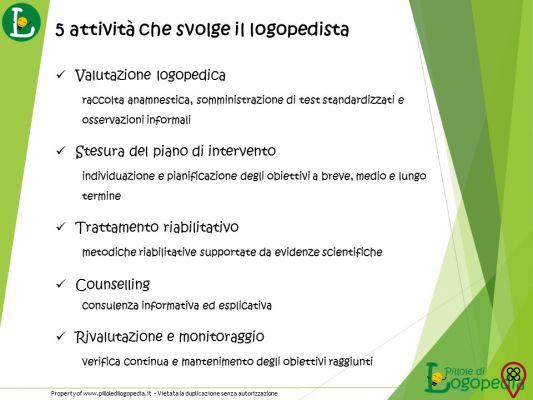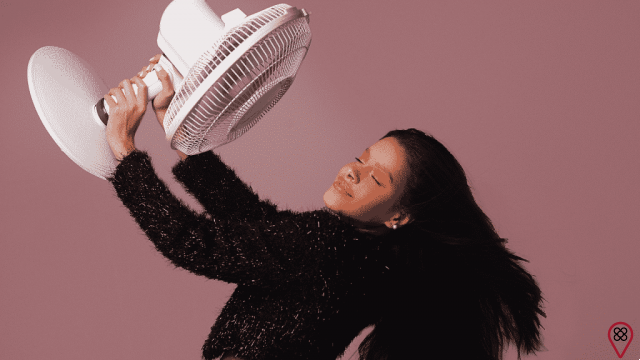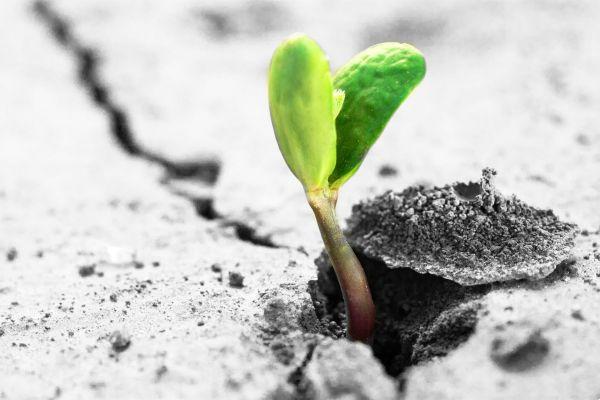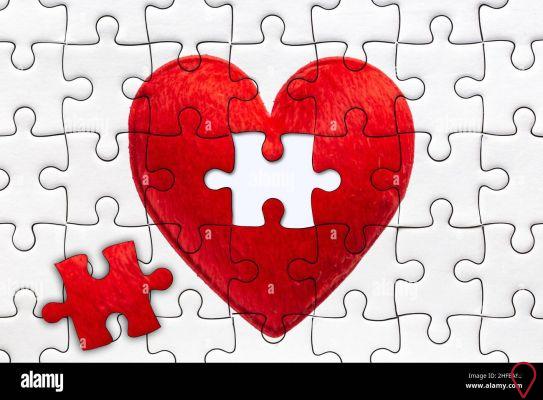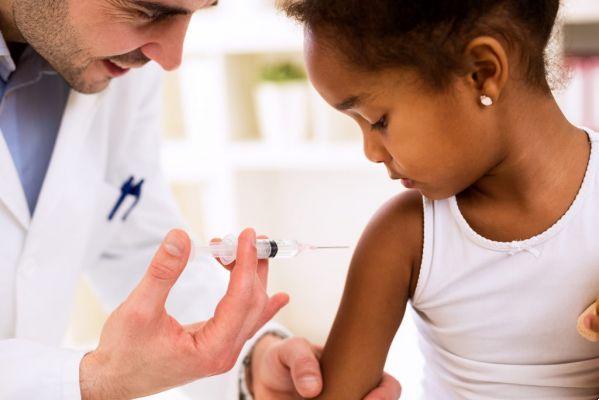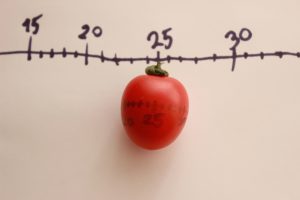O intestine It is part of the Digestive (or Digestive) System. The function of this system is to simplify food to facilitate absorption by the body. The organ is divided into intestine thin and intestine thick. The small one absorbs most of the nutrients, while the large one absorbs water, which gives the stool firmness. O intestine Slender measures approximately 6 meters long by 4 centimeters in diameter. It has three subdivisions:
- Duodenum: region close to the stomach, measures about 25 centimeters and has a “C” shape. The duodenum receives food that has not been fully digested by the stomach. At this stage, food joins bile, a fluid produced by the liver responsible for digesting fats and retaining nutrients.
- Jejunum: located in the central part of the intestine thin, measures 2,5 meters. It is the region where the greatest absorption of nutrients occurs.
- ileum: measures 3,5 meters and continues to absorb nutrients, especially vitamin B12.
O intestine thick is similar to a horseshoe as it is open downwards. It measures approximately 6,5 centimeters in diameter and 1,5 meters in length. The absorption of water is so fast that in just 14 hours food takes the form of a fecal cake. Failures in this process are caused by viruses and spoiled food and cause diarrhea. O intestine bulk also absorbs nutrients not assimilated by the intestine slender. It has three subdivisions:
- Czech: is a kind of bag, approximately 5 centimeters. The cecum is the path taken by food waste (already as fecal cake) to reach the colon.
- Colon: most of the intestine thick, crosses the entire abdomen. It is formed by the ascending, transverse, descending and sigmoid colon, which is “S” shaped. The colon is responsible for retaining nutrients and eliminating food waste, toxins and poisons.
- Challenge: to final part do intestine thick measures 15 centimeters and ends in the anal canal. The function of the rectum is to absorb feces, before elimination through the anus.
The importance of the intestine
O intestine it is very important for the Human Body. In addition to storing nutrients and water, it has enormous relevance for immunity.
Approximately 60% of the cells that protect the body are in the intestine. The organ still has 500 species of bacteria and 100 trillion microorganisms. This good team forms the intestinal flora. When she has more harmful bacteria than beneficial, diseases related to intestinal health arise. Drinking liquids during feeding, incorrect chewing, constant use and without medical guidance of anti-inflammatory drugs and antibiotics harm the health of the intestine and cause constipation, among other diseases:
- Irritable bowel disease: chronic disease, whose symptoms range from constipation to diarrhea. The disease occurs due to alterations in the contractions of the intestine (too fast or too slow). Bloating and abdominal pain, gas and mucus in the stool are some of the symptoms. The disease can be controlled by avoiding fatty foods, caffeine, gluten, and fizzy drinks. Medications are prescribed in the most severe cases.
- Hemorrhoid: when the pressure of the veins in the anus increases, they inflame, swell, and hurt. Hemorrhoids can be inside the rectum or anus and be internal or external. The problem is caused by chronic diarrhea or constipation. Poor fiber diet and sitting for a long time also contribute to the emergence of hemorrhoids.
- Appendicitis: common disease of the digestive system. It is caused by obstruction by fat and feces, gastrointestinal infection and food stuck in the cavity of the appendix, small pouch stuck at the beginning of the process. intestine thick. Loss of appetite, low-grade fever and nausea are the main symptoms. Appendicitis requires surgery to remove the appendix. If not treated in time, the inflammation spreads and can lead to death.
- Crohn's Disease: mystery even to doctors, Crohn's Disease has no cure. It usually attacks the ileum (intestine small intestine) and colon (intestine thick) In the mild and moderate phase it causes frequent diarrhea and abdominal pain. In the moderate and severe stage the patient has nausea and vomiting, fever and anemia. In the fulminant phase, intestinal obstruction occurs. Skin problems and arthritis are symptoms associated with the disease. Surgery is indicated in severe cases.
- Cancer: the disease can reach the intestines and their components. the cancer of intestine usually does not present symptoms and when it manifests the tumor is large. Intestinal changes such as diarrhea, blood in the stool and weight loss for no apparent reason are signs that may indicate tumors. According to physician Angelita Habr Gama, a specialist in coloproctology and gastroenterology, it is common for people who have blood in their stools to receive a diagnosis of hemorrhoids without undergoing a digital rectal examination. Angelita advises to request the exam and if the doctor refuses, she looks for another professional.
Gut, the second brain
Store nutrients, water and act on the immune system, these three factors already make the intestine a very important body for the Human Body. But did you know that the proper functioning of the intestine is also associated with emotions? Doctors call the intestine of “the second brain”. If the physiological reasons are enough to have good habits, we are going to tell you how the emotional affects intestinal health.
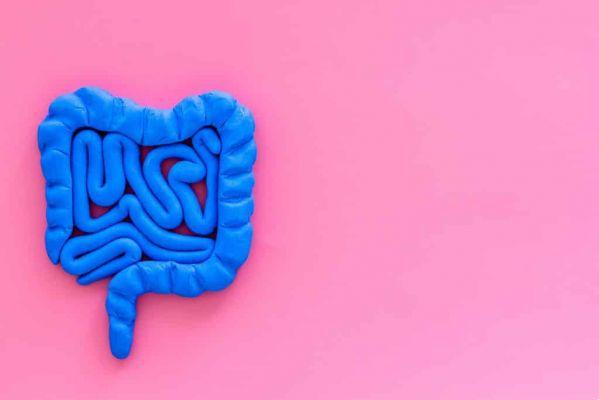
O intestine controls the emotions, mental state and our food preferences. The health of this organ determines the well-being of the brain. Do you know what butterflies in the stomach during fear, nausea when we are scared and the feeling of "butterflies in the stomach" common to lovers have in common? These are symptoms caused by the connection between the transmitters of the intestine and the brain. By the way, did you know that the intestine is a nervous system? It has an impressive 100 million neurons. Were you impressed? You will be even more surprised by the power of intestine.
In our articles we have already talked a lot about serotonin. O intestine produces and stores 98% of the neurotransmitter responsible for good mood and memory. The organ still manufactures more than 30 neurotransmitters. Serotonin processes and transmits information and sensory stimuli through neurons. When there is a drop in the level of the neurotransmitter, physical, mental and emotions are compromised.
Brain and intestinal disease link
the connection between intestine and brain proves the relationship between intestinal diseases and emotions. According to Boston University (United States), 90% of patients with intestine irritable have emotional problems. Women, very affected by intestinal diseases, hide their complaints out of shame. It is estimated that 75% of Spanish women do not mention the malfunction of the intestine. This prejudice aggravates physical and mental health, but what to do for good intestinal functioning? Let's list a series of dietary measures:
What to avoid?
Alcohol
The link between alcohol and breast cancer is still unclear. intestine. However, it is known that three 350 ml cans of beer, three 150 ml glasses of wine or three shots of whiskey daily increase the risk of people prone to the disease, individuals with a family history, advanced age, sedentary lifestyle and poor eating habits.
Overweight
Abdominal fat and obesity increase the risk of colon and rectal cancer, according to research published in the American Journal of Epidemiology. Scientists from Maastricht University (Holland) evaluated 120 men between 55 and 69 years old who were overweight or at the beginning of obesity. At the end of the survey, 25% of the participants were more prone to colorectal cancer. Those with a larger abdominal circumference were 63% more likely to have this cancer.
Red meat
Consuming red meat in excess, as well as canned, sausages and smoked foods makes the body produce metabolites, substances that modify the cells of the intestine thick. For people in the risk group, it is advisable to eat 200 grams of red meat every 7 days (once or twice a week). Other foods are prohibited.
Smoke
Smokers are 18% more likely to develop breast cancer. intestine. Cigarette toxins promote genetic changes throughout the body, a situation that favors the emergence of cancerous tumors.
What to include in the diet?
Functional products
Their regulation came out in España in 1999. In addition to nourishing, functional products have substances that improve health and reduce the incidence of diseases. However, they are not substitutes for fruits and vegetables. The benefits of functional products depend on healthy habits.
These foods improve gut health, fight free radicals, and make it difficult to store fat. People with constipation, high cholesterol and very stressed are the target audience.
Examples of functional foods
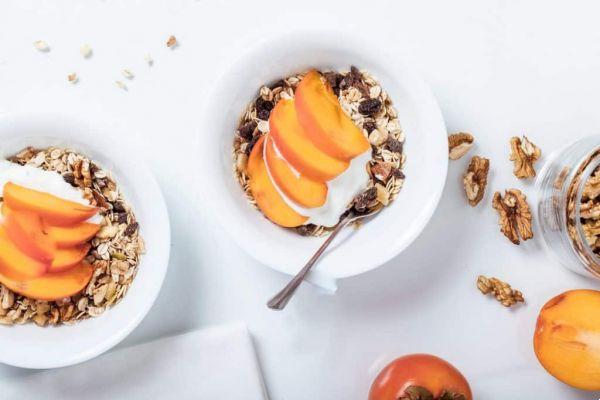
Fiber – Whole grains, fruits and vegetables
They increase the stool, which facilitates the proper functioning of the intestine. Fibers reduce the contact time of the intestinal mucosa with toxins. Check out some recommended foods:
- Wholemeal bread, flaxseed, quinoa, amaranth and chia
- Plum, papaya, kiwi, blackberry and fig
- Lettuce, arugula, kale, watercress and zucchini
Probiotics – Yogurt
Bacteria that prevent the growth of harmful microorganisms. Probiotics promote the production of defense cells.
Prebiotics – Soy-based drink and bread
Substances that provide food for the intestinal flora
Phytosterols – Yogurt and Margarine
Decrease the absorption of fats
Beta Glucan – Oats and Barley
Substance that reduces the absorption of cholesterol
Mannitol, Xylitol and Sorbitol – Gum chewing sugar free
They destroy the acids that spoil the teeth, however, the gum does not replace brushing after meals.
Lycopene, Lutein and Zeaxanthin – Pill Supplements
These antioxidants remove substances that age cells
Physical exercises

Physical activity decreases the chance of bowel cancer by 24%.
Doing 30 minutes of exercise a day five times a week improves the functioning of the intestine, controls weight and reduces stress, some of the risk factors for intestinal diseases. Walking is a great start to get out of a sedentary lifestyle.
Periodic exams
Prevention is always the best medicine. Having a colonoscopy every ten years, starting at age 50, reduces the incidence of colorectal cancer by up to 40%. People with a family history or other risk factors should be tested after age 40. Colonoscopy investigates diarrhea, abdominal pain, anal bleeding, among other intestinal changes.
Biofeedback anorretal
The procedure is a physiotherapy in which the patient learns to make correct movements during evacuation. Biofeedback improves the anal musculature and also the sensitivity of the anorectal region. It is indicated in the following cases:
- Anal incontinence in patients without surgery
- Postoperative period of patients after surgery for anal incontinence solution
- chronic rectal pain
How is done?
With the patient lying down, a thin probe is placed into the anal canal. Biofeedback is a painless procedure.
Preparation
- Women cannot take the test during their period.
- You don't need to fast in many cases
- No need to stop taking medication
- Rectal lavage the night before or two hours before the procedure
And you thinking that the intestine it was just the organ that made you go to the toilet…
- Cleanse and regulate your gut with natural ingredients
- Take better care of your gut
- Explore the link between gut and brain
- Study how PMS alters the functioning of the intestine
- Beware of the effect of antibiotics on your gut
He is more important than you might think. In addition to storing water and nutrients, the intestine produces large amounts of neurotransmitters. They communicate with the brain and cause the famous butterflies in the stomach, common when we are afraid. Intestinal diseases such as constipation, intestine irritable and several others have their origin in emotional problems.
the connection between intestine and brain proves that the Human Body it is a gear or a symphony.
When everything is in harmony, the machine or the music is performed with mastery. However, just something doesn't work for the body to suffer. We need to look at the body as a temple. Religious devote extreme zeal to caring for the environment. Are we going to take that same care of our body? Check up, balanced diet, physical activity, quitting smoking and avoiding alcoholic beverages are the keys to the proper functioning of the intestine. Giving up delicious things is not easy, but it is really difficult to live with the symptoms of a disease and face the treatment, which often includes surgical intervention.
Take care of the body, understand and treat as emotions guarantee healthy life. It's simple and no one doesn't know it. So why do so many people insist on destructive habits? Worse than changing late is never changing, so roll up your sleeves and really live, after all, a healthy mind, healthy body.



